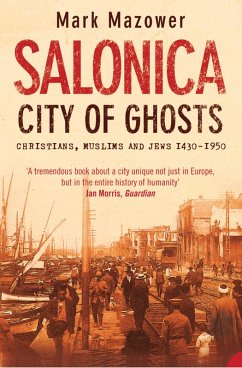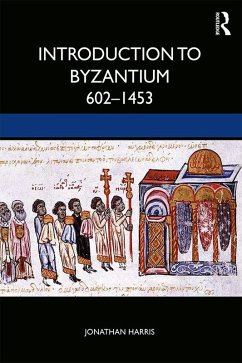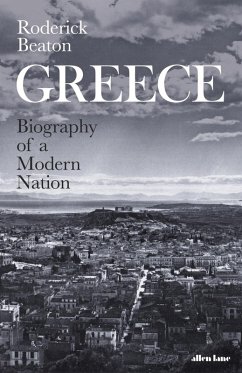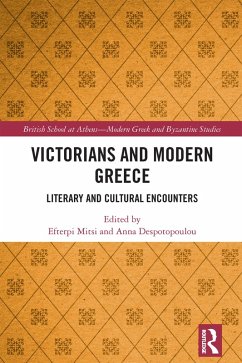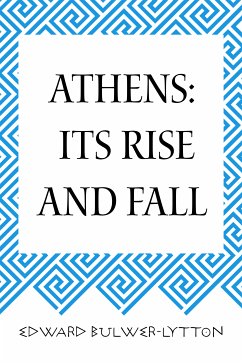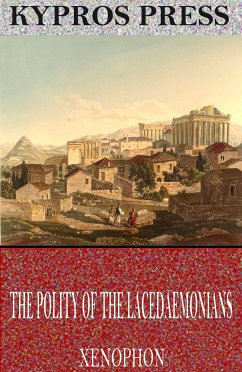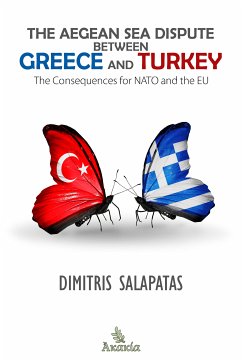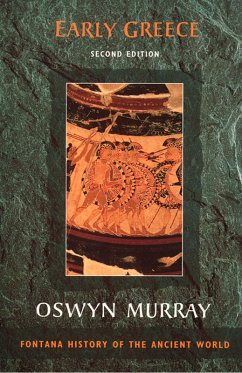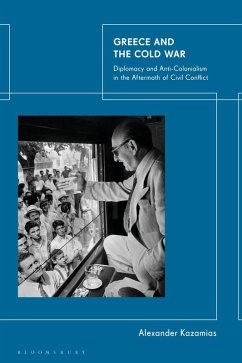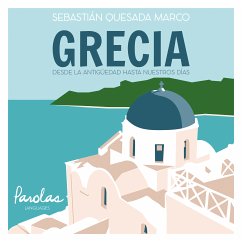
20 Thematics in History and Philology of Ancient Byzantine And Modern Hellas (eBook, ePUB)

PAYBACK Punkte
0 °P sammeln!
The Hellenes (Greeks) lived in Asia Minor, in their historical homeland, since antiquity, where the ancient hellenic cities flourished until the Hellenistic years. Much later, Asia Minor was conquered by Turkic tribes who moved there from Central Asia. The Greeks remained in these territories until the beginning of the 20th century, when the Kemalists seized power of the Ottoman state. The Seven Churches, the Seven Lamps of Hellenic-Christian culture, were extinguished.. From Aeolia to Lycia and Cilicia, from Bithynia to Paphlagonia and Cappadocia, and from Caria and Ionia to Lydia, Mysia, Pi...
The Hellenes (Greeks) lived in Asia Minor, in their historical homeland, since antiquity, where the ancient hellenic cities flourished until the Hellenistic years. Much later, Asia Minor was conquered by Turkic tribes who moved there from Central Asia. The Greeks remained in these territories until the beginning of the 20th century, when the Kemalists seized power of the Ottoman state. The Seven Churches, the Seven Lamps of Hellenic-Christian culture, were extinguished.. From Aeolia to Lycia and Cilicia, from Bithynia to Paphlagonia and Cappadocia, and from Caria and Ionia to Lydia, Mysia, Pisidia and Pamphilia, the Hellenic element was culturally dominant, except for some periods until the Roman conquest, when the Hittites first and then the Persians subdued by force of arms and numerical superiority the flourishing Hellenic cities and towns of Asia Minor..
Ionia was a fertile land. Her ports teemed with life. The need to import raw materials prompted its inhabitants to establish colonies, mainly on the Black Sea coast. The Ionians attached great value and importance to social life. This is evident in the architectural creations of their cities. They developed philosophy, science, architectural style with subtlety, harmony and elegance, urbanism, poetic metre, rhetoric, geography, historiography, Ionic dialect, poetry and theatre..
Lycia, a country associated with legends and traditions already since Homeric times, extends along the south east coast of Asia Minor, east of Rhodes and very close to it. We first encounter the Lycians in the «Iliad», on the side of the Trojans. Their leaders were Glaucus and Sarpedon..
Greeks founded colonies and other settlements in new environments.This whole process took place during the period of the first and second Great Greek Colonisation in 8th and 6th centuries BCE, respectively. Greek culture and local cultures met, influenced, and enriched each other. This cultural heritage, that they created together and which was kept until the roman and byzantine era,formed later the basis foundations of modern European culture..
From the shores of misty Albion, Pytheas made perhaps the most mysterious voyage in the history of Ancient Navigation. Returning from these places, he visited the whole coast-line of Europe from Gadira to the river Tanais (Scythia)..
Beginning from the 9th century, the route from the Baltic Sea to the Black Sea became particularly profitable and important to the Slavs. One of Constantinople most powerful trading partners was Ancient Russia. An important revival in relations between Russia and Constantinople happened in the 9th century when the waterway «From the Varangians to the Greeks» connected northern Europe with the South..
The Greeks, with the invitation to the area of Azov of Catherine II The Great, were the descendants of the Ionians, who lived in Asia Minor and after the persecution of the Turks on the coast of Asia Minor, in the Aegean and Crete fled to the lands of Novorussia..
Theophanes the Greek, with the vivid expressionistic and mystical style, drove the Palaiological tradition of the art of Constantinople to an extreme form..
The Venerable Father Paisius Velichkovski contributed decisively so that «Philokalia» could be rendered correctly in the Slavic language and it was one of his most important services to the Church..
The Monastery of Chora and its burial chapel, together constitute a masterpiece composition of architecture, mosaic decoration and hagiography, a brilliant example of our late Byzantine culture..
Ionia was a fertile land. Her ports teemed with life. The need to import raw materials prompted its inhabitants to establish colonies, mainly on the Black Sea coast. The Ionians attached great value and importance to social life. This is evident in the architectural creations of their cities. They developed philosophy, science, architectural style with subtlety, harmony and elegance, urbanism, poetic metre, rhetoric, geography, historiography, Ionic dialect, poetry and theatre..
Lycia, a country associated with legends and traditions already since Homeric times, extends along the south east coast of Asia Minor, east of Rhodes and very close to it. We first encounter the Lycians in the «Iliad», on the side of the Trojans. Their leaders were Glaucus and Sarpedon..
Greeks founded colonies and other settlements in new environments.This whole process took place during the period of the first and second Great Greek Colonisation in 8th and 6th centuries BCE, respectively. Greek culture and local cultures met, influenced, and enriched each other. This cultural heritage, that they created together and which was kept until the roman and byzantine era,formed later the basis foundations of modern European culture..
From the shores of misty Albion, Pytheas made perhaps the most mysterious voyage in the history of Ancient Navigation. Returning from these places, he visited the whole coast-line of Europe from Gadira to the river Tanais (Scythia)..
Beginning from the 9th century, the route from the Baltic Sea to the Black Sea became particularly profitable and important to the Slavs. One of Constantinople most powerful trading partners was Ancient Russia. An important revival in relations between Russia and Constantinople happened in the 9th century when the waterway «From the Varangians to the Greeks» connected northern Europe with the South..
The Greeks, with the invitation to the area of Azov of Catherine II The Great, were the descendants of the Ionians, who lived in Asia Minor and after the persecution of the Turks on the coast of Asia Minor, in the Aegean and Crete fled to the lands of Novorussia..
Theophanes the Greek, with the vivid expressionistic and mystical style, drove the Palaiological tradition of the art of Constantinople to an extreme form..
The Venerable Father Paisius Velichkovski contributed decisively so that «Philokalia» could be rendered correctly in the Slavic language and it was one of his most important services to the Church..
The Monastery of Chora and its burial chapel, together constitute a masterpiece composition of architecture, mosaic decoration and hagiography, a brilliant example of our late Byzantine culture..
Dieser Download kann aus rechtlichen Gründen nur mit Rechnungsadresse in A, B, CY, CZ, D, DK, EW, E, FIN, F, GR, H, IRL, I, LT, L, LR, M, NL, PL, P, R, S, SLO, SK ausgeliefert werden.




